 When co-owners of property decide they want to go their separate ways but cannot come to an agreement on a buyout or reimbursements, they can institute a partition action and have the court system solve the problem.
When co-owners of property decide they want to go their separate ways but cannot come to an agreement on a buyout or reimbursements, they can institute a partition action and have the court system solve the problem.
While partition actions usually involve homes or commercial properties, they can also involve condominiums. Condos bring with them some additional complexities because condo owners generally own an interest in their individual units and the common areas of the condominium complex.
This dual ownership can pose problems because there are restrictions in place about what can and can’t be partitioned when condominiums are involved. Thankfully, the Underwood Law Firm is more than familiar with partitions of all types of property and is here to assist property owners throughout the process.
 California Partition Law Blog
California Partition Law Blog


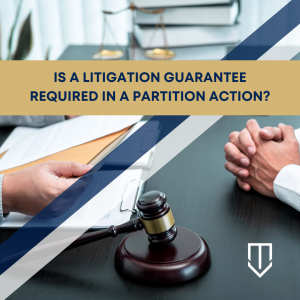 While litigation guarantees are recommended in a lot of contested real estate issues in court, it is not required in a
While litigation guarantees are recommended in a lot of contested real estate issues in court, it is not required in a 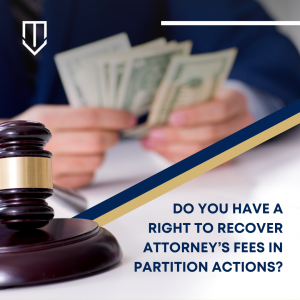 Yes. In California, you have a right to recover attorney’s fees by statute. But that doesn’t mean that you can recover 100% of your fees, even in
Yes. In California, you have a right to recover attorney’s fees by statute. But that doesn’t mean that you can recover 100% of your fees, even in  Yes. Partnership property is subject to partition on the dissolution, accounting, and wind-up of partnership matters, just like other types of property. As real estate presents unique issues, however, there are many important things to know about the process to ensure that it is done correctly. The purpose of this blog post is to address some of the issues involved with partitioning property belonging to a partnership.
Yes. Partnership property is subject to partition on the dissolution, accounting, and wind-up of partnership matters, just like other types of property. As real estate presents unique issues, however, there are many important things to know about the process to ensure that it is done correctly. The purpose of this blog post is to address some of the issues involved with partitioning property belonging to a partnership.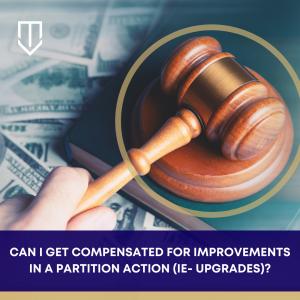 Yes. A party may be able to receive credits and/or offsets for upgrading a property in a partition action under many circumstances. In a
Yes. A party may be able to receive credits and/or offsets for upgrading a property in a partition action under many circumstances. In a 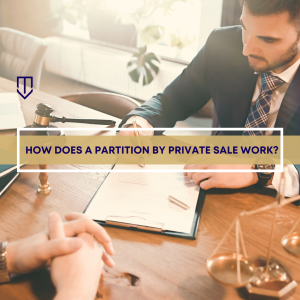 Partition by a private sale is a method of selling jointly owned property, either by joint tenants or tenants in common, under the court’s supervision via a court order or a court-ordered referee.
Partition by a private sale is a method of selling jointly owned property, either by joint tenants or tenants in common, under the court’s supervision via a court order or a court-ordered referee. 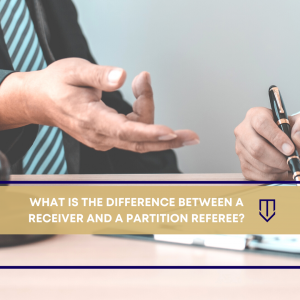
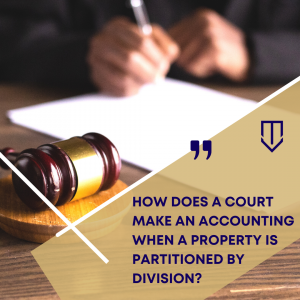 When there is a court-ordered
When there is a court-ordered 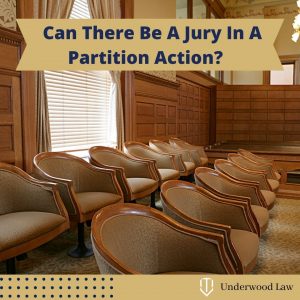 Generally speaking, no, jury trials are not available in partition actions because partition action lawsuits are generally based on equity and therefore do not need a jury trial to decide each party’s rights.
Generally speaking, no, jury trials are not available in partition actions because partition action lawsuits are generally based on equity and therefore do not need a jury trial to decide each party’s rights.